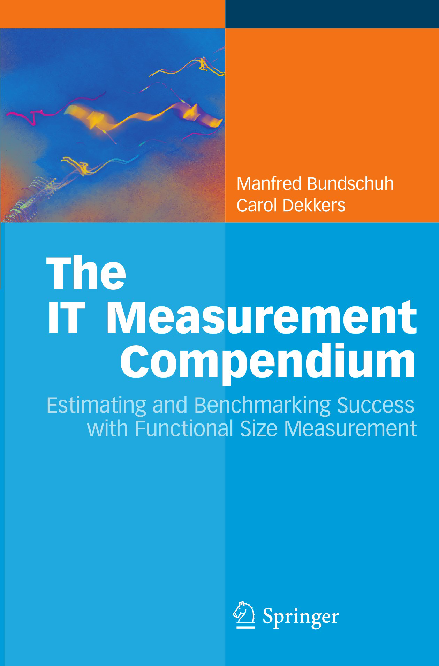

Most ebook files are in PDF format, so you can easily read them using various software such as Foxit Reader or directly on the Google Chrome browser.
Some ebook files are released by publishers in other formats such as .awz, .mobi, .epub, .fb2, etc. You may need to install specific software to read these formats on mobile/PC, such as Calibre.
Please read the tutorial at this link: https://ebookbell.com/faq
We offer FREE conversion to the popular formats you request; however, this may take some time. Therefore, right after payment, please email us, and we will try to provide the service as quickly as possible.
For some exceptional file formats or broken links (if any), please refrain from opening any disputes. Instead, email us first, and we will try to assist within a maximum of 6 hours.
EbookBell Team

4.3
98 reviewsMeasurement and estimation of software projects has been extremely difficult for both technical and sociological reasons. The technical reasons include scores of poorly-defined and incompatible metrics, gaps or “leakage” from historical data, and the rather sparse collection of accurate benchmarks available to the general software community.
The sociological reasons center around the adversarial relationships between followers of rival metrics and measurement practices. For many years the “lines of code” metrics users have been at odds with the “function point” metrics users. Several other forms of measurement such as earned value, balanced scorecards, and goal-question metrics also have supporters and tend to ignore other forms of metrics.
In recent years the situation has become even more complex. As of 2008 there have been at least 24 function point variants, 5 methods for counting lines of code, and perhaps 15 other forms of measurement such as use case points, story points, object-oriented metrics, and others too numerous to cite.
Dekkers and Bundschuh navigate this tricky area with clarity and objectiveness. All of the major metrics variants are discussed and explained, and their pros and cons are noted.
The book also discusses the organizations that are trying to eliminate competition among the rival metrics camps and achieve some kind of consensus on what needs to be measured and how to go about it. Although there is still antagonism among the various rivals, this new book by Dekkers and Bundschuh is likely to be useful in leading to common goals and mutual understanding of what the various metrics were trying to accomplish.
Prior to the publication of this book, there was no easy way for followers of various metrics to learn about the other possibilities. While there…